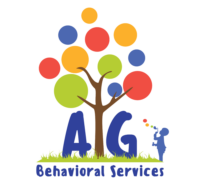As our understanding of Autism Spectrum Disorder (ASD) continues to evolve, recent research has shed light on the developmental milestones of children with autism and underscored the pivotal role parents play in supporting their child’s growth.
Recent Findings on Developmental Milestones:
Children with autism often experience delays or differences in reaching developmental milestones across various domains, including communication, social interaction, cognitive skills, and motor skills. These delays can vary widely among individuals, with some children exhibiting delays in specific areas and others across multiple domains.
Early diagnosis and intervention are crucial. A study found that children diagnosed with ASD before the age of 2.5 were three times more likely to show significant improvement in core social symptoms compared to those diagnosed later.
For an in depth view of Developmental Milestones by age click here .
Recent Posts
- Measuring Progress: What to Expect in Your Child’s First 6 Months of ABA Therapy
- Preparing Your Home for In-Home ABA Therapy: A Parent’s Guide
- A New Window into Autism: Yale Scientists Discover Molecular Differences in the Brain
- Navigating the Holidays with Your Autistic Child: A Guide for Parents
- Essential Reading for Parents of Autistic Children: A Verified Guide
TherapyWorks
Advancements in technology are also aiding early detection. Researchers have developed AI-based screening systems that can help identify toddlers at elevated risk of autism with about 80% accuracy for children under two years old.
The Crucial Role of Parental Involvement
Parental involvement is a cornerstone in the development and education of children with autism. Studies have shown that active parental participation is associated with improvements in academic performance, social skills, and emotional adjustment.
Programs like Project ImPACT empower parents to build social, communication, and play skills in their children through evidence-based strategies. This approach involves collaborative goal-setting and equips parents with tools to support their child’s development effectively.
Similarly, the Early Start Denver Model (ESDM) emphasizes the partnership with parents, focusing on interpersonal engagement and communication development through joint activity routines that align with the child’s natural interests.
Practical Strategies for Parents
To proactively support your child’s development:
- Engage in Daily Routines: Incorporate therapeutic strategies into everyday activities like mealtime, play, and bedtime to reinforce learning.
- Create a Structured Environment: Establish predictable routines and dedicated spaces for learning to enhance focus and motivation.
- Collaborate with Professionals: Work closely with therapists and educators to align on goals and strategies tailored to your child’s needs.
- Stay Informed: Keep abreast of the latest research and interventions to make informed decisions about your child’s care.
- Join Support Networks: Connect with other parents and support groups to share experiences and resources.
Conclusion
Understanding the developmental trajectory of children with autism and the profound impact of parental involvement can guide effective strategies to support their growth. By staying informed and actively participating in your child’s development, you can make a significant difference in their journey.
For more information and resources, consider exploring the following:
- Autism Speaks Science News
- Project ImPACT Overview
- CDC’s Information on Autism Spectrum Disorder
- Developmental Milestones by Age
AGBS provides ongoing care for children, adolescents, and young adults with autism to improve the quality of their lives. If you would like learn more about how AGBS can help please contact us here , or call 908-913-0443.




